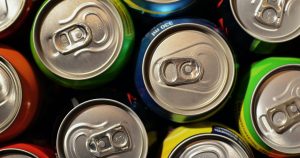
Commonly lumped together with food, the beverage industry is one of the biggest industries in the consumer goods market. The beverage industry is evolving on a constant basis. As such, beverage companies have the monumental task of responding to beverage industry trends, keeping up with consumer demand, and growing the beverage market. As with all markets, there’s been a massive shift in the beverage industry that set off in 2020. Where is the industry heading? Let’s explore!
Where is the Beverage Industry Heading?
The start of this decade ushered in massive changes to consumer profiles, as well as emerging trends. As such, it is vital for those who are working in the beverage sector to be informed of the trends so that they can make appropriate decisions that will help to advance the success of their companies. So, where is the beverage industry heading? The following is a brief overview.
Future Trends for the Beverage Industry
The following are some of the biggest trends in the beverage industry that have been identified and highlighted by industry experts.
Functional Beverage Growth
The demand for beverages that are centered on health and wellness has increased in recent years and that trend is projected to continue moving forward. At one time, it seemed like zero-calorie beverages were about all that could be done as far as health and wellness went; however, that’s changed.
Today, consumers want drinks that are both low in calories and functional; in other words, they want their drinks to offer actual nutritional and health benefits. Beverages that contain probiotics and prebiotics, as well as meal replacement beverages that are packed with vital nutrients, and drinks that enhance energy levels are majorly on-trend, and that trend is moving upwards.
Combining Beverages
It used to be that there were specific beverages; fruit juices, sodas/soft drinks, coffee, energy drinks, alcoholic drinks, etc. However, that’s changed dramatically in recent years. Nowadays, the industry lines in the beverage sector have been crowded, with companies that offer alcoholic beverages also offering non-alcoholic options, and vice versa.
This blurring of the industry lines is largely the result of a marked increase in competition in the drink market. This has resulted in the need for innovation in order for brands to remain relevant and gain a competitive edge
Pepsi and Coke are the perfect examples to illustrate the blurring of industry lines. In the summer of 2021, Pepsi joined forces with Boston Beer and created an alcoholic Mountain Dew (dubbed “Hard Mountain Dew”). In the summer of 2020, Coke launched Topo Chico Hard Seltzer and the beverage behemoth intends on exploring more alcoholic beverage options moving forward.
The Future of the Beverage Industry
There’s never a dull moment in the beverage industry, and it looks like this will continue to be the case moving forward. With that said, it’s exciting to think about what kind of new and innovative ideas will be introduced into the market and what new trends will take off. In short, the future continues to look bright for the beverage industry.
Additional Information: Sugar reduction prompts demand for natural, low-calorie sweeteners
What can Fortress Nutrition LLC do for you?
Rest assured that you’re in good hands with Fortress Nutrition. To learn more about how we tailor our blending, ingredient sourcing, logistics, consumer packaging, and other services to meet customer needs, and find out how we can partner with you to ensure compliance with new GMO laws, contact us today.